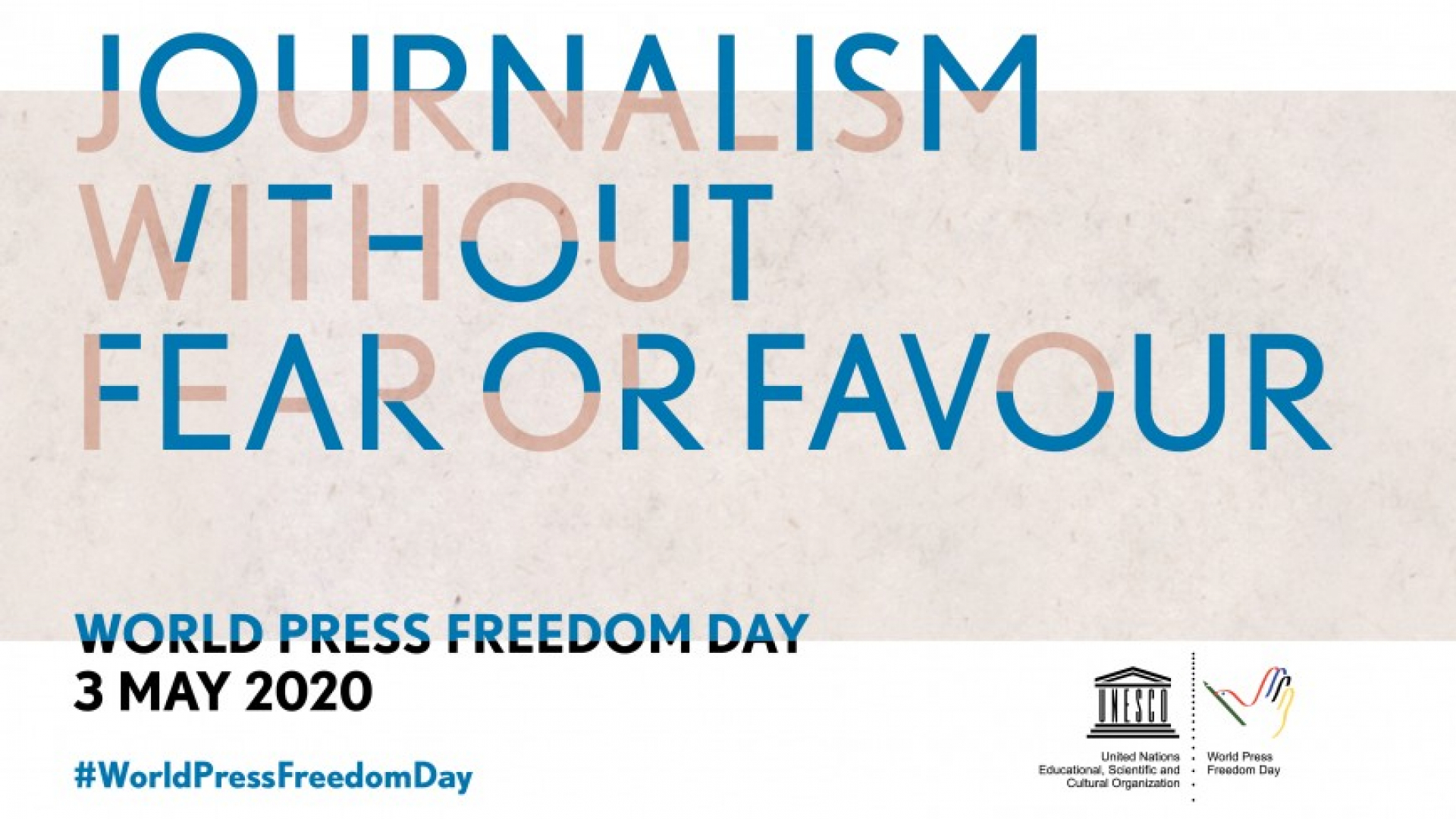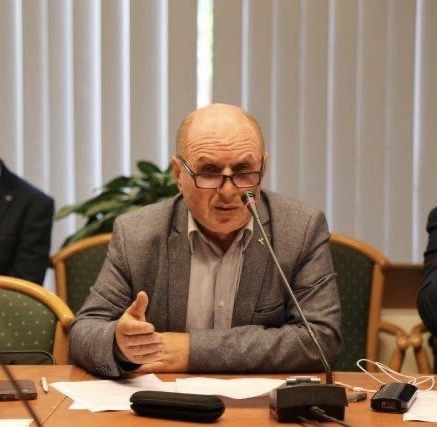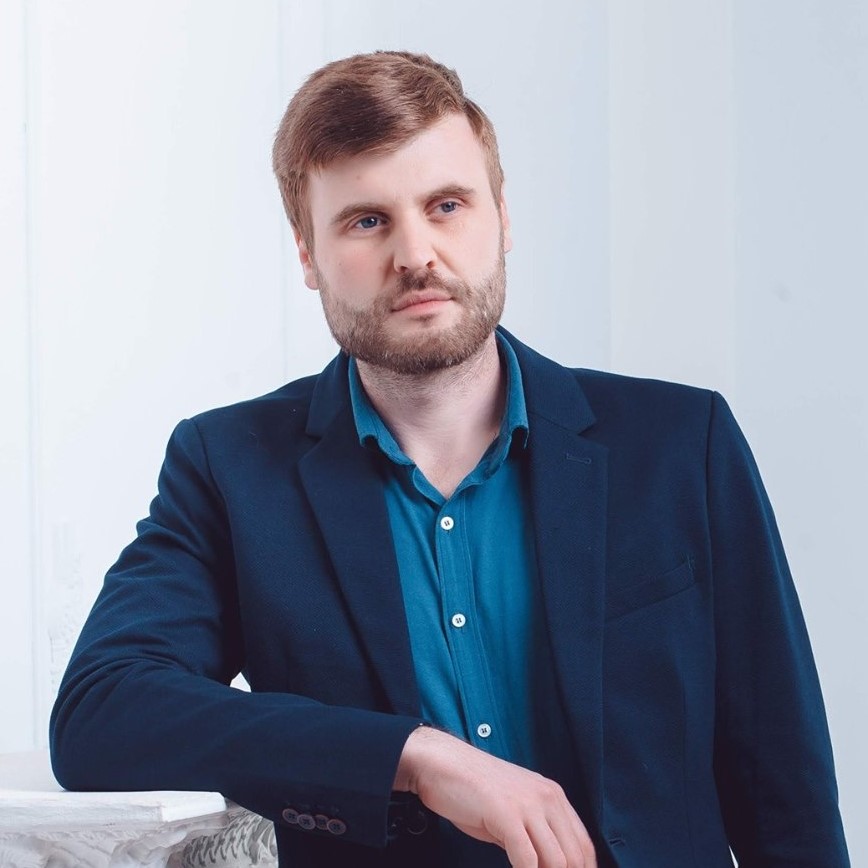back
Journalism without fear or favor

Journalism without fear or favor
World Press Freedom Day is marked annually on 3 May, established by the UN General Assembly in 1993 following a 1991 UNESCO resolution which recognised that a free, pluralistic and independent press is an essential element of a democratic society. On this day, freedom of the press in the world is assessed, governments are asked to ensure the rights of journalists and protect the media against attacks of any kind, and a tribute is paid to media contributors who have lost their lives in the exercise of their profession. 3 May is also a day for media professionals to reflect on the fundamental principles of the journalistic profession and professional ethics.
This year, on the occasion of Press Freedom Day, UNESCO launched the global campaign Journalism without fear or favour. The Independent Press Association (API) joins this campaign and will carry out several activities and publications to promote the freedom and independence of journalists and media institutions during Press Freedom Days in Moldova.
In the context of the "Journalism without fear or favour" campaign, API asked several journalists and media experts to answer two questions:
1. Why is Moldova lagging behind and even regressing in press freedom? (In the ranking of the international organization Reporters Without Borders, Moldova was ranked 55th out of 180 countries monitored in 2013, and in the following years fell to 91st place in 2019 and 2020). Who is to blame for this: the authorities, but the journalistic profession?
2. This year, UNESCO is marking World Press Freedom Day with a campaign under the slogan "Journalism without fear or favour". How do you understand this principle? Is this possible in Moldova? If not - why
.jpg)
Alina Radu, director of Ziarul de Gardă:
1. After 2010, a new political class is said to have emerged in Moldova. The old communist party remained on the sidelines of the political process, while new parties took over the state powers. Some of the new political leaders, more overtly, more covertly, have established themselves deep in the media institutions, many new TV channels, portals and newspapers have appeared - most of them with political patrons. A lot of dark money has appeared through these media outlets, blogs have sprung up for tailored attacks and social media groups to carry out political orders. This has steadily and deeply undermined the state of free press in Moldova. Independent journalism has thus lost access to the advertising market, to information, to licenses, to fair distribution of the press, to equal opportunities to do fair and ethical journalism in a state captured by corrupt politicians.
2. No fear of taking the authorities to task, no fear of confronting corrupt dignitaries with arguments and facts, no fear of tackling citizens' most important issues - that would be the slogan. However, journalists should have some fears: the fear of discrediting themselves in front of the public by violating ethical rules, the fear of fulfilling orders from political bosses to the detriment of the public interest, the fear of knowing important things for society but not communicating them because of self-censorship.
Is this possible in Moldova? For us at ZdG it is possible, even if some of the reporters are threatened, sued, verbally and physically attacked, for them - the fear of disappointing the citizens prevails over the fear of bothering a politician and losing some favour: an invitation to work at the politician's/party's TV station, an invitation to a tour paid by the party's affiliated companies, a possibility of employment in political structures or a favour of becoming a consultant to an oligarch.

Vasile Botnaru, Director of the Chisinau Bureau of Radio Free Europe:
1. First of all, it's the press consumers who tolerate adulterated products on the daily menu alongside quality samples. Why they are not discerning enough is another story, as long as 1001 nights.
2. It's unlikely because the decision-makers don't want to wear Solomon's ring.

Viorica Zaharia, President of the Press Council of Moldova:
1. When establishing the press freedom index, various factors are taken into account, including access to information in the country concerned, concentration of media ownership, media legislation, security of journalists, etc. Thus, while in some areas, such as attacks on journalists, we fortunately have a relatively good situation, in others things have deteriorated, hence the drop in the top positions. We have had in the last 8 years a concentration of media ownership in some and the same hands, press holding companies have been created that serve political interests and not the public interest, we have a much worse access to information, in some segments, than it was previously, etc. However, the fact that in 2020 Moldova remained on the same place, 91, where it was in 2019 in the RSF ranking in terms of freedom of the press is rather a progress, if we think about the fact that so far we kept "falling". Yet, in 2019 we were down 10 positions compared to 2018.
Who is to blame? Journalists and authorities alike, 50/50. Especially in countries in transition or with emerging democracies like ours, the authorities tend to subordinate their press, and if these tendencies do not meet with strong resistance from the profession, the press becomes unfree. This is what has happened in our case. Most journalists have succumbed to the temptation to work easily and comfortably with big money. It's harder to be independent, to fight the system for information, to write stuff that upsets the powers that be, to work, after all, in several places to make a decent salary...
2. Fearless journalism in Moldova already exists. Otherwise, we wouldn't have the famous investigations of ZdG, RISE, Anticoruptie.md, which resulted in resignations or criminal cases, or good TV shows, from which people actually find out what is really happening in the country. I am certain that this kind of journalism will develop in Moldova. As for favours, they too will exist to make journalists vulnerable and unfree. The UNESCO campaign should remind journalists that accepting favours means losing their freedom.

Veaceslav Perunov, director portalul Esp.md, Bălți, președinte API:
1. В первую очередь виноваты власти, которым не выгодны свободные СМИ, которые пытаются их контролировать, поэтому необходимые законы или не принимаются или их принимают очень долго и в искажённом виде. Влияет и стремление представителей власти и различных партий иметь собственные карманные СМИ. Этим они развращают и бывших в прошлом хороших журналистов, они скупают их большими зарплатами, лучшими условиями труда и т.д. Слабость молдавской экономики, а, следовательно, и финансовая слабость независимых СМИ, является хорошим фундаментом для таких действий со стороны представителей ангажированных медиа-холдингов. На падение индекса свободы прессы влияет и нежелание или неспособность руководителей многих СМИ относиться к своему делу как к бизнесу и развивать своё СМИ не только в плане журналистики, но и в плане медиабизнеса. Опять же эти руководители зачастую никак не реагируют на инновации в журналистике, на использование новых медиа-площадок и новых технологий. В результате, некоторые СМИ становятся рупором того или иного политика де факто, а де юре заявляющих о себе, как о независимых СМИ, другие уходят с рынка и т.д.
2. Я понимаю этот девиз так, что журналистам не надо бояться заниматься своей профессией и не относиться избирательно к представителям различных политических движений и финансовых групп, то есть стремиться к объективности, даже несмотря на наличие собственных политических и иных взглядов. Такое в Молдове возможно, но, к сожалению, таких СМИ у нас единицы, мало кто соблюдает деонтологический кодекс, много бывших журналистов сменили профессию и стали пропагандистами, часть из них стали «слишком бизнесменами» и на всё готовы ради роста трафика и рейтинга – на публикацию кричащих, часто не соответствующих действительности, заголовков, лживых новостей и мнений, построенных на выдуманных ими же фактах или препарирующих новости в своих интересах и т.д.

Vasile State, news editor at Radio Chisinau, president of APEL:
1. Freedom of the press in Moldova has been in a continuous degradation for the last eight years, and the culprits of this state of affairs are politicians, first and foremost and with few exceptions, both those who are or have been in power and those who are or have been in opposition. The interests of politicians in connection with the media are more than obvious if we look at the results of the parliamentary elections at the beginning of last year. Three of the four political-electoral parties that have reached the Chisinau Parliament (PDM, the Shor Party and the PSRM) have benefited generously from media support from the three main media holdings, those controlled by Vladimir Plahotniuc and Ilan Shor, as well as from people close to the entourage of the socialists, supporters of President Igor Dodon. Beyond the harmfulness of this phenomenon, which has had oscillating developments over the past year, what is more serious is that in 2019 the concentration of ownership in the media continued to be alarming. Thus, against the backdrop of a certain stagnation with regard to the first two holding companies or the weakening of a political pole, a new media empire, the one controlled by the PSRM government and the head of state, has been dangerously consolidated.
Of course, the executive authorities also bear a large part of the blame, because they were unable or unwilling to draw up policies to prevent the increase in political control of the media or to take measures to at least limit the extent of this phenomenon. Here too, we must remember that ensuring freedom of expression and media independence are commitments in the Moldova-EU association agenda. However, there has been little action and little change. Yes, it is true that at the beginning of the year the Audiovisual Media Services Code came into force, which is a relatively good document, we dare say, but so far no one has made an analysis of how the new law is being implemented.
Normally, the press freedom index does not expressly measure the quality of journalism, although it is very difficult to put this aspect into context when editorial policies are correlated with the interests of owners/oligarchs.
2. I appreciate the fact that UNESCO chose this slogan to mark World Press Freedom Day. At the same time, I believe that respecting this slogan would be a great challenge for the press in Moldova. In order to meet this challenge, we must have and increase the number of professional and strong journalists who exercise their profession with verticality, fighting for freedom of information and press independence. These journalists from the few independent media outlets in Moldova are, unfortunately, the favourite targets of intimidation and harassment by the authorities and politicians. Let us recall the reprehensible gestures made by some politicians during the past year, as well as some hostile statements against the press by some high-ranking state officials, such as President Igor Dodon, who earlier this year, in March, urged the press not to make "shows" out of reporting on the COVID-19 pandemic situation. Similarly, an attempt to "close the mouths of the press" was the order issued on 24 March by the chairman of the Audiovisual Council, Dragos Vicol, with immediate enforceability for radio and TV stations, on how to cover stories related to the spread of the Coronavirus, which provoked criticism among journalists and experts in the field.

Rodica Mahu, editor-in-chief of Gazeta de Chisinau:
1. How would you like it to be if the media remains concentrated in two or three centres that coincide with the poles of power (and which are not necessarily the same)? Around them they satellite the rest. The TV stations and their trusts are the dominant ones. The websites follow at a great distance, an anonymous mass of copy-pastings, the written press becoming a negligible entity. It's economic censorship and the impoverishment of the reading public. All as a result of a democratic backlash. For the client governments that have come and gone, it is only the press they pay for that matters.
2. The slogan seems to me out of touch with reality.
Unfortunately, too few characters in journalism here. And too much sycophancy. Viciousness, yes, venality, give me more, my God! What do you do then? You're looking for the adrenaline rush of the profession for money, as much money as you can get?...
Though journalism without fear and favour is possible. Only on your own, and only in singular cases, with professionals of integrity. An antidote to fear for others.

Tudor Iascenco, director of the newspaper Cuvântul, Rezina:
1. Government, whatever it is, always tends towards autocracy. Whether this tendency is achieved depends on whether the other branches of power, including the media, dubbed the "fourth power in the state", allow it to happen. In Moldova, a large part of the media prefers the role of an instrument of the government in its work of manipulating citizens according to its own interests. Unfortunately, the Soviet heritage and traditions have strong roots in our country and a large part of journalists prefer, figuratively speaking, the sparrow in the hand, but not the crow on the fence. I am convinced that if our guild would be more solidary in terms of respecting professional ethics, would care more about its own image and reputation, the situation would be different...
2. According to the principles of ethics, journalists must report fairly on how the authorities do their work, give media consumers the opportunity to analyse and assess the words and deeds of those in power, reveal and criticise abuses and wrongdoing. Yes, I believe such journalism is possible in Moldova. Several newsrooms and journalists in the print and electronic media have proved it. Is it complicated, dangerous? Yes, it is more complicated, often inefficient and dangerous than serving the authorities. But these are risks specific to our profession. Does the doctor seem to face fewer problems and risks? Or the soldier, the fireman, the farmer, the policeman, etc., who conscientiously do their duty?

Vitalie Hotnogu, editor-in-chief of Ziuadeazi.md portal, Cahul:
1. Freedom of the press is an ambiguous concept. When part of the media institutions are effectively controlled by politicians who financially maintain the activity of these media, it is difficult to compete. Strange as it may seem, the local press is on the same market as the national media, with national TV stations and portals as competitors, although the sources of funding and the possibilities to develop this business are much smaller. At the local level we also face a distressing situation: local public authorities tend to develop their own media channels, often ignoring existing media institutions to the detriment of their own, often unprofessional, structures.
Are we free to write what we believe and in the form we believe? Unfortunately, no. We are partly to blame. Local authorities have a very high degree of self-esteem and do not tolerate criticism, even if it is argued and proven. There is a risk of losing sources, some simply get angry and stop communicating. Colleagues who benefit from projects funded by external donors have the hardest time, and the activities they have to do depend directly on the LPA. We have often taken this risk, we have also borne the consequences, we say this from practice. Even so, for us the readers are more important, people deserve to be informed correctly, especially since the term of office of an official can be only 4 years, and the way he contacts the press can play a significant role in other elections. We are not at war with anyone, but neither are we loyal partners, except the reader. This we believe is our freedom.
2. The phrase "fearless journalism", if we are to speak of professional and independent journalism, is in our opinion a tautology. What kind of fear can there be in journalists? If you have taken a step, you have to go all the way. Any hesitation, any step backwards is a sign of weakness and then journalism is over and the pressure intensifies etc.
As for favours, the biggest trap a local media institution can fall into is the contract with the state, with the APL. Even if it's not big money, such an approach at least mentally blocks the manifestation of civic spirit in journalism. You can't write or say anything negative about that LPA, even when there are resonant stories. The journalist can be blocked by the publisher or the owner of the publishing house. This form of corruption is widespread in our country.